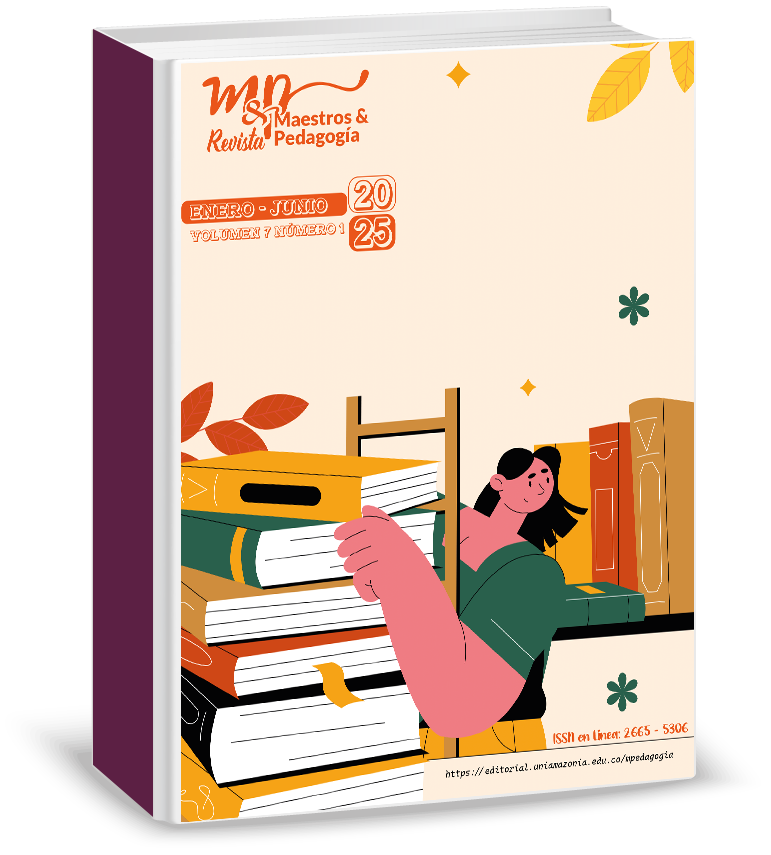LA APLICACIÓN DEL TEATRO DEL OPRIMIDO EN EL AULA: UNA HERRAMIENTA PARA UNA EDUCACIÓN INCLUSIVA E INTERCULTURAL
DOI:
https://doi.org/10.47847/myp.v7n1a1Palabras clave:
Pedagogía del oprimido, teatro del oprimido, educación inclusiva, educación intercultural, problemas culturalesResumen
El presente artículo explora la aplicación del Teatro del Oprimido, una propuesta del escritor y dramaturgo Augusto Boal, basada en la pedagogía de Paulo Freire, en un aula de 1º de Bachillerato de un instituto de secundaria en la Comunidad Valenciana (España). El aula a la que va dirigido este taller presenta serios problemas de exclusión y racismo, lo que genera un ambiente hostil. El objetivo de esta investigación es comprobar si el Teatro del Oprimido puede llegar a ser una herramienta pedagógica efectiva para promover la inclusión, la empatía, la justicia social y la participación activa del alumnado, con el objetivo de transformarlos de espectadores pasivos en agentes activos en la resolución de conflictos. Este estudio subraya la importancia de la educación inclusiva y el encuentro entre culturas, para lograr así una educación intercultural.
Descargas
Referencias
Ainscow, M., Booth, T., & Dyson, A. (2006). Improving Schools, Developing Inclusion (1o edición). Routledge. https://doi.org/10.4324/9780203967157
Ainscow, M., Dyson, A., & Goldrick, S. (2013). Promoviendo la equidad en educación. Revista Latinoamericana de Educación Inclusiva, 11(3). https://dialnet.unirioja.es/descarga/articulo/4735222.pdf
Arcas, P. (2004). El juego de los prejuicios. En La interculturalidad pedagógica: Nuevos enfoques, nuevas propuestas. Editorial AXAC.
Baraúna, T., & Motos, T. (2009). De Freire a Boal. Ñaque.
Boal, A. (1975). 200 ejercicios y juegos para el actor y no actor con ganas de decir algo a través del teatro. Crisis.
Boal, A. (2006). La estética de lo oprimido. Alba.
Boal, A. (2009). El teatro del oprimido. Alba.
Castel, R. (2004). Encuadre de la exclusión. En La exclusión: Bordeando sus fronteras: Definiciones y matices (pp. 55-86). Gedisa.
Cormann, E. (2007). Para qué sirve el teatro. Universitat de Valencia.
Freire, P. (2009). La educación como práctica de la libertad. Siglo XXI.
Freire, P. (2012). Cartas a quien pretende enseñar. Siglo XXI.
Freire, P. (2023). Pedagogía del oprimido. Siglo XXI.
Freire, P. (2022). Pedagogía de la esperanza. Un reencuentro con la pedagogía del oprimido. Clave Intelectual.
Guerrero, J. A. (2020). El cuaderno del alumno como instrumento de evaluación ¿cómo implementarlo? https://docentesaldia.com/2019/02/21/el-cuaderno-del-alumno-como-instrumento-de-evaluacion-como-implementarlo/
Hernando, A. (2016). Viaje a la escuela del siglo XXI. Fundación Telefónica España. https://www.fundaciontelefonica.com/cultura-digital/publicaciones/
Jordán, J. A. (1997). Propuestas de la educación intercultural para profesores. CEAC.
Ley Orgánica 3/2020, de 29 de diciembre, por la cual se modifica la Ley Orgánica 2/2006, de 3 de mayo, de Educación. Boletín Oficial del Estado, núm. 340, de 30 de diciembre de 2020, páginas 122868 a 122953. Recuperado de https://www.boe.es/eli/es/lo/2020/12/29/3.
Levinas, E. (2006). Totalidad e infinito: Ensayo sobre la exterioridad (7a ed). Sígueme.
Lipman, M. (1998). Pensamiento complejo y educación (2ª edición). Ediciones De La Torre.
Lipman, M. (2012). Thinking in education (second edition). Cambridge University.
Muguira, A. (2023). Pasos para hacer una encuesta para estudiantes. QuestionPro. https://www.questionpro.com/blog/es/encuestas-para-estudiantes/
Pujolàs Maset, P. (2012). Aulas inclusivas y aprendizaje cooperativo. Educatio Siglo XXI, 30(1), 89-112.
Santcum, F. (2009). El curinga. Una investigación de alternativas. En Pedagogía teatral: De Freire a Boal (pp. 125-140). Ñaque.
Sapon-Shevin, M. (2013). La inclusión real: una perspectiva de justicia social. Revista de investigación en educación, 11, 71-85. http://webs.uvigo.es/reined/
Sartori, G. (2001). La sociedad multiétnica. Pluralismo, multiculturalismo y extranjeros. Taurus.
Sartre, J.-P. (2021). El ser y la nada: Ensayo de ontología fenomenológica. Losada.
Zembylas, M. (2020). From the Ethic of Hospitality to Affective Hospitality: Ethical, Political and Pedagogical Implications of Theorizing Hospitality Through the Lens of Affect Theory. Studies in Philosophy and Education, 30 (1), 37-50.



